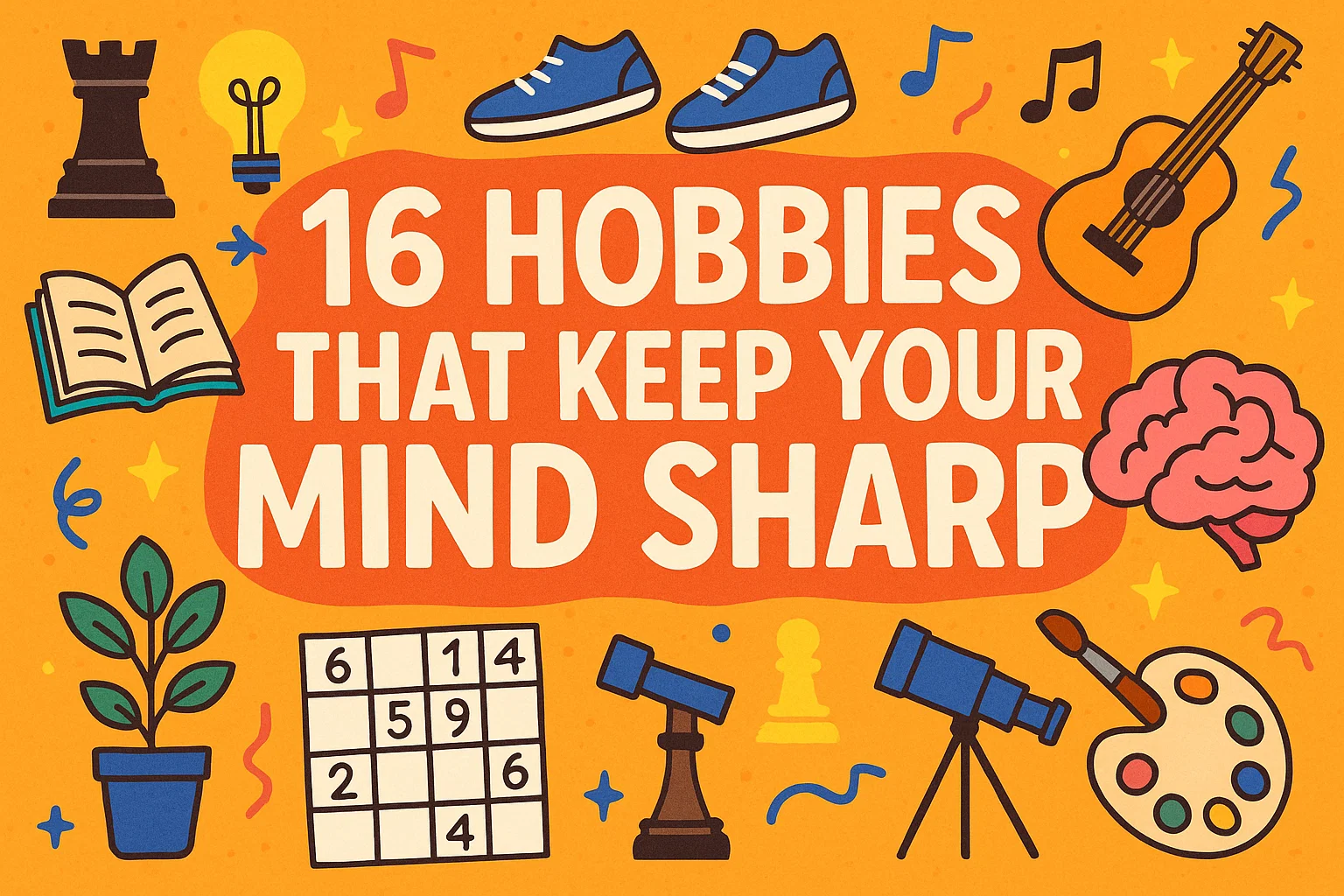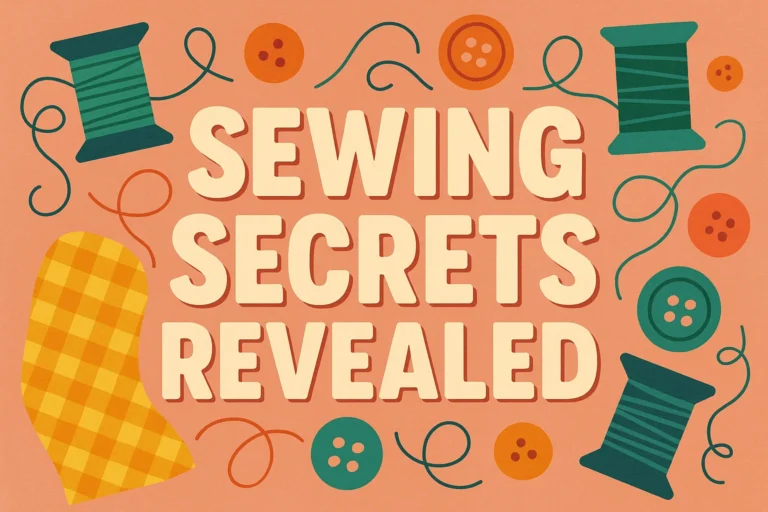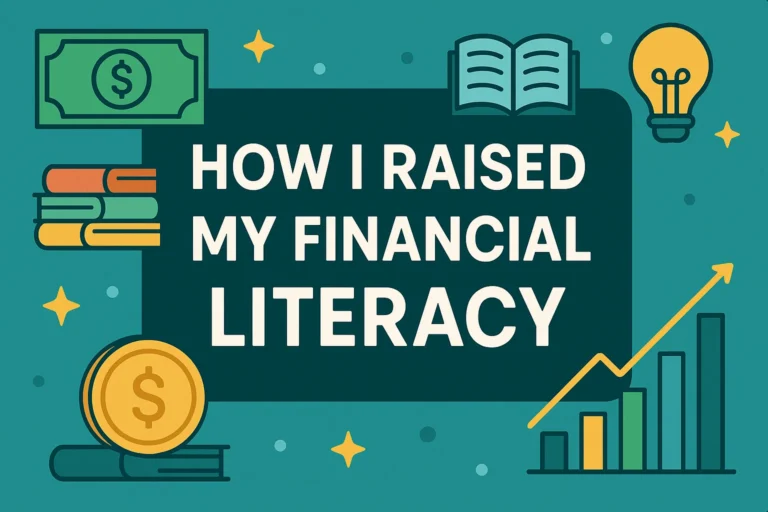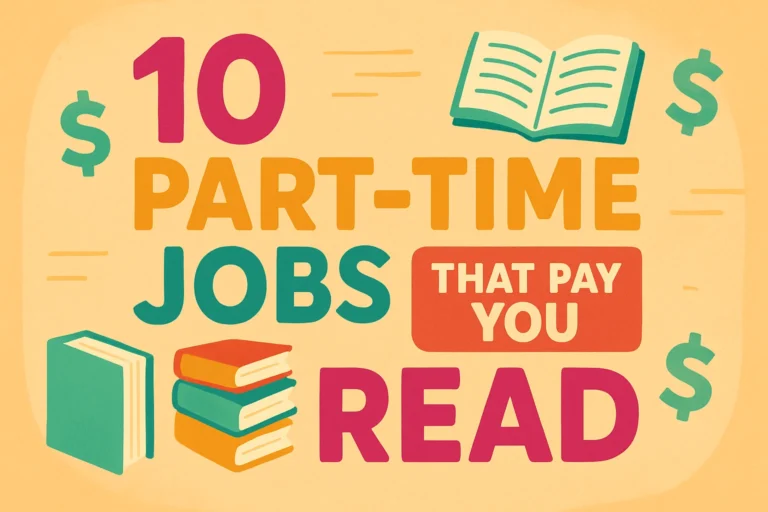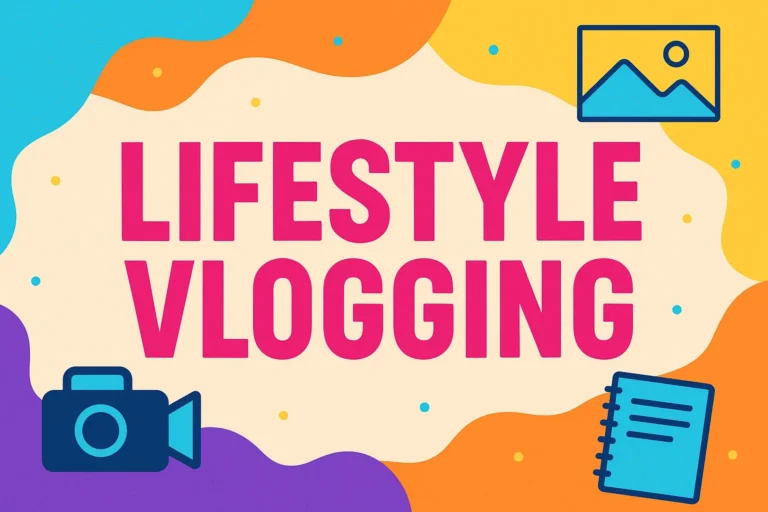16 Hobbies to Learn for Skills That Keep Your Mind Sharp and Boost Brain Power
Alright, let’s be real for a second. How many times have you walked into a room and completely forgotten why you were there? Or stared at your keys, willing your brain to remember where you left them? Don’t worry, we’ve all been there. It’s like your brain decides to take a coffee break without telling you.
But what if you could train your brain to be more reliable, sharper, and just all-around more impressive? The good news is, you absolutely can. And the best part? It doesn’t involve boring drills or swallowing a handful of questionable supplements. It’s about finding activities you genuinely enjoy—hobbies that secretly double as a full-blown mental workout.
I’ve always been a hobby magpie, flitting from one interesting thing to the next. And over the years, I’ve noticed that the ones that stick are the ones that make me feel smarter and more engaged with the world. So, grab a cup of coffee, and let’s chat about 16 fantastic hobbies that will keep your mind razor-sharp. Think of it as a gym membership for your neurons, but way more fun.
Why Your Brain Needs a Hobby (And Not Just Another Netflix Marathon)
We all know the feeling of a good binge-watch. It’s comfortable, it’s easy, and it requires zero effort. But your brain is kind of like a muscle—if you don’t challenge it, it gets complacent. Engaging hobbies force your brain to form new neural pathways, a concept known as neuroplasticity.
This isn’t just about memory. We’re talking about boosting creativity, improving problem-solving skills, enhancing focus, and even regulating emotions. The goal is to find something that pushes you slightly outside your comfort zone, making your brain sweat in the best way possible.
Ready to find your new mental obsession? Let’s get into it.
The Creative & Artistic Cohort
These hobbies are all about firing up the right side of your brain. They teach you to see the world differently and solve problems in innovative ways.
1. Learning a Musical Instrument
Ever feel a pang of envy watching someone effortlessly play the guitar? It’s not too late. Picking up an instrument is a full-brain workout. It combines fine motor skills, mathematical timing (rhythm), auditory processing, and memorization. I started with the ukulele a few years back because, let’s be honest, it’s hard to be sad while playing a uke. The struggle to make my fingers form a C chord was real, but the moment I strummed my first recognizable song? Pure magic. You’re not just learning songs; you’re building new neural connections with every note.
2. Digital Photography
This goes far beyond just pointing and shooting. Modern photography forces you to think about composition (the rule of thirds, anyone?), lighting, and storytelling. Then you get to the editing software, which is a puzzle all its own. Learning Lightroom or Photoshop is a fantastic way to develop technical and aesthetic skills simultaneously. It trains your eye to find beauty and interest in the mundane.
3. Drawing or Painting
You don’t have to be the next Picasso. The act of translating a 3D world onto a 2D surface is an incredible cognitive challenge. It improves your visual analysis, patience, and hand-eye coordination. Start with a simple sketchbook and a pencil. The goal isn’t a masterpiece; it’s the process of seeing and interpreting. It’s a form of mindfulness that forces you to focus on the here and now.
4. Creative Writing
Whether it’s short stories, poetry, or even journaling with a creative flair, writing is a powerhouse for your brain. It builds vocabulary, enhances memory recall as you weave plots and details, and fosters empathy as you develop characters. Juggling narrative structure, character arcs, and grammar is a serious mental feat. The best part? Your only limit is your imagination.
The Strategic & Puzzle Masters
If you love a good logic problem, these hobbies are for you. They’re all about strategy, foresight, and outsmarting your opponent—even if that opponent is yourself.
5. Chess
The classic brain game for a reason. Chess is the ultimate test of strategy, pattern recognition, and foresight. You have to think several moves ahead, anticipate your opponent’s strategy, and adapt on the fly. With online platforms making it easy to find a game at any level, there’s no barrier to entry. It’s a brutal but brilliant teacher of patience and planning.
6. Learning a New Language
¡Hola! Bonjour! 你好! This is arguably one of the most effective ways to boost cognitive function. Studies show it can delay the onset of dementia and improve memory and executive function. It’s not just about memorizing words; it’s about understanding new grammatical structures and cultural contexts. Apps like Duolingo make it feel like a game. Trust me, the first time you understand a snippet of a foreign film without subtitles, you’ll feel like a genius.
7. Jigsaw Puzzles
Don’t underestimate the humble jigsaw puzzle. Sitting down with a 1000-piece monster is a fantastic way to improve visual-spatial reasoning, short-term memory, and problem-solving. It’s a meditative, low-stakes activity that requires intense focus. Plus, the satisfying click of the final piece is a dopamine hit everyone deserves.
8. Coding
Hear me out! Coding isn’t just for tech bros in Silicon Valley. Learning the basics of a language like Python or HTML is essentially learning how to talk to a computer and solve problems logically. It’s incredibly rewarding to build something from scratch, even if it’s just a simple website or a silly program. Free resources like Codecademy break it down into bite-sized, manageable lessons. It’s the ultimate “aha!” moment hobby.
The Mind & Body Connectors
These activities prove that a healthy body truly does house a healthy mind. They focus on the powerful connection between physical movement and mental clarity.
9. Yoga
More than just fancy stretching, yoga is a moving meditation. It requires you to focus on your breath, hold complex poses (which engages your proprioception—knowing where your body is in space), and quiet the mental chatter. The combination of physical control and mental discipline is unmatched for reducing stress and improving concentration. I always leave a session feeling physically worked and mentally clear.
10. Gardening
This one surprised me. Gardening is a slow, patient hobby that teaches you about biology, seasons, and cause and effect. It requires planning (what to plant where), problem-solving (why are my tomatoes looking sad?), and provides a tangible reward for your efforts. There’s also a ton of research on how soil microbes can actually boost your mood. Getting your hands dirty is good for the soul and the brain!
11. Dancing
Dancing requires you to coordinate movement with rhythm, remember sequences, and constantly adapt. Whether it’s a structured class like salsa or just freestyling in your kitchen, you’re giving your memory, motor skills, and auditory processing a serious run for their money. And hey, if you look a little silly, who cares? You’re too busy building a better brain.
The Practical & Skill-Based Hobbies
These are the hobbies that leave you with something tangible—a useful skill, a repaired object, a delicious meal. They’re incredibly satisfying and mentally engaging.
12. Cooking & Baking
Following a recipe is a great start, but truly learning to cook is a creative and chemical adventure. You learn about how flavors work together, the science of heat, and the precision of baking (it’s basically edible chemistry). Improvising a meal from what’s in your fridge is a fantastic test of creativity and resourcefulness. And the reward? You get to eat your homework.
13. Woodworking
Measuring twice and cutting once is just the beginning. Woodworking is a 3D puzzle that combines geometry, physics, spatial reasoning, and patience. The focus required to safely use tools and assemble a piece is a form of active meditation. Creating a physical object from a raw piece of wood provides a deep sense of accomplishment that’s great for your mental well-being.
14. Volunteering or Mentoring
Teaching a skill to someone else is one of the best ways to solidify your own understanding. Volunteering for a cause you care about or mentoring someone forces you to communicate clearly, empathize, and often think on your feet. Explaining a complex concept in simple terms is a supreme test of your own knowledge. It provides social connection and a sense of purpose, which are huge contributors to long-term cognitive health.
The Modern & Digital Options
Who says brain-boosting hobbies can’t be digital? These modern pursuits are designed to challenge your mind in new and exciting ways.
15. Podcast Deep Dives
Passive listening doesn’t count. I’m talking about active listening. Find a podcast on a deeply complex topic you know nothing about—quantum physics, Roman history, ethical philosophy. Take notes. Pause it and think about what they’re saying. Look up terms you don’t understand. This is like taking a university course on your own time, and it’s brilliant for building general knowledge and critical thinking skills.
16. Exploring with Google Earth or Street View
This might sound silly, but stay with me. Pick a city you’ve always wanted to visit and “walk” through it on Street View. Try to find famous landmarks using only visual clues. Or use Google Earth to explore remote mountain ranges or ocean trenches. You’re building your spatial memory and learning about geography and culture from your couch. It’s a fantastic, free way to satisfy your curiosity and see the world.
Your Brain is Waiting… What Will You Try?
Phew, that was a lot! But the point isn’t to overwhelm you. It’s to show you that there’s a whole world of fun out there that’s secretly fantastic for your gray matter.
The best hobby for you is the one that piques your curiosity. The one that makes you lose track of time. Don’t put pressure on yourself to be perfect at it. The goal is the journey, the learning, and the little mistakes along the way. That’s where the real growth happens.
So, which one on this list made you think, “Huh, I’d actually try that”? Maybe it’s two or three. IMO, that’s even better. Your brain is an incredible organ, and it’s begging for a new challenge. Give it one. You might just forget where you put your keys a little less often 🙂

